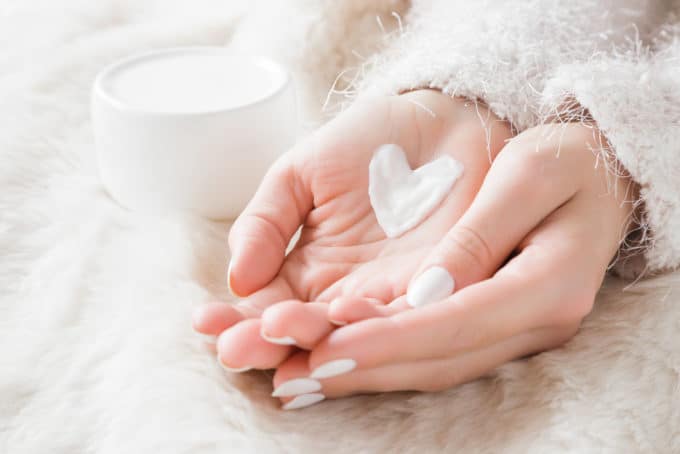How to Avoid Dry Winter Skin

Dry skin can happen as a results of many factors, not just environmental issues such as weather. When we get older, our skin tends to become both thinner and dryer. These two things make the perfect combination for skin to become more prone to itching, scaling, dryness, and cracking. Not only is it uncomfortable when this happens, but it can cause problems because this dryness can create cracks in the skin that allow bacteria to enter the body. Some of these dry skin issues can also happen due to the medications that people take.
Causes of Dryness
The epidermis is the top layer of the skin. It is made up of a lipid barrier as well as skin cells. These things protect the body by keeping bacteria out. They also act to keep the moisture in the skin. Not only age, but things such as winter weather can disrupt this protection. Another thing that can cause the skin to dry out is the use of harsher cleansers. They may be damaging, but the way a person washes can also add to the problem. If the washing is too often and too hard, then this can also dry out the skin. When this is done in the winter, then it becomes even harder to keep the skin replenished with moisture.
Preventing Dry Skin
Prevention is always the best, and that would mean keeping the skin moisturized. When choosing new products, look for those that have dimethicone, deramides, and Shea butter. Alpha hydroxy acids can also be helpful in removing dead skin cells. This needs to be done with caution however, since some people find this acid to be irritating to their skin. Doctors state that the thicker ointments provide a stronger barrier for the skin. If the greasiness of the ointment is too uncomfortable, then using a very thick cream can also be effective. For those in their forties or older, it is important to take the time to moisturize your skin on a daily basis. When winter hits, doing this daily routine even twice a day might be called for to keep away the dry skin. It is also helpful to do this right after a shower or bath when the skin has some wetness to it. Of course, in the winter when it is cold outside, taking a long hot shower or bath can sound very appealing. It is not good however, when it comes to your skin. Taking a shower or bath using lukewarm water, and only staying in for no more then 5 minutes is much healthier for winter skin. Another thing to look out for is the type of cleanser that is used. Soap is always going to be drying, but those cleansers that include alcohol, exfoliants, or scents can cause irritation. It is best to stick with those products that are gentle to the skin as well as free of any fragrances. Use of a humidifier, especially during the winter, can also benefit the skin. The heating that happens indoors during the winter can be very drying. It’s very helpful to the skin if the indoor air can have a humidity between 30 and 50 percent.
Treating Dry Skin
If after trying all of the techniques to keep your skin moisturized, you find that they are just not working, it might be necessary to go to your doctor and have it checked out. Your doctor will be able to prescribe you medication, including an antibiotic in cases of infection. Going to a doctor to treat your skin issues might be the best thing. Dr. David A Baird is a board certified dermatologist at BairdMD in Farmington, Michigan. In the end, it is up to us to take care of our skin as best we can. There are always going to be factors that have a negative impact on our skin. However, facing those challenges and doing the most we can possibly do is the best way to keep our skin healthy, especially during winter.

